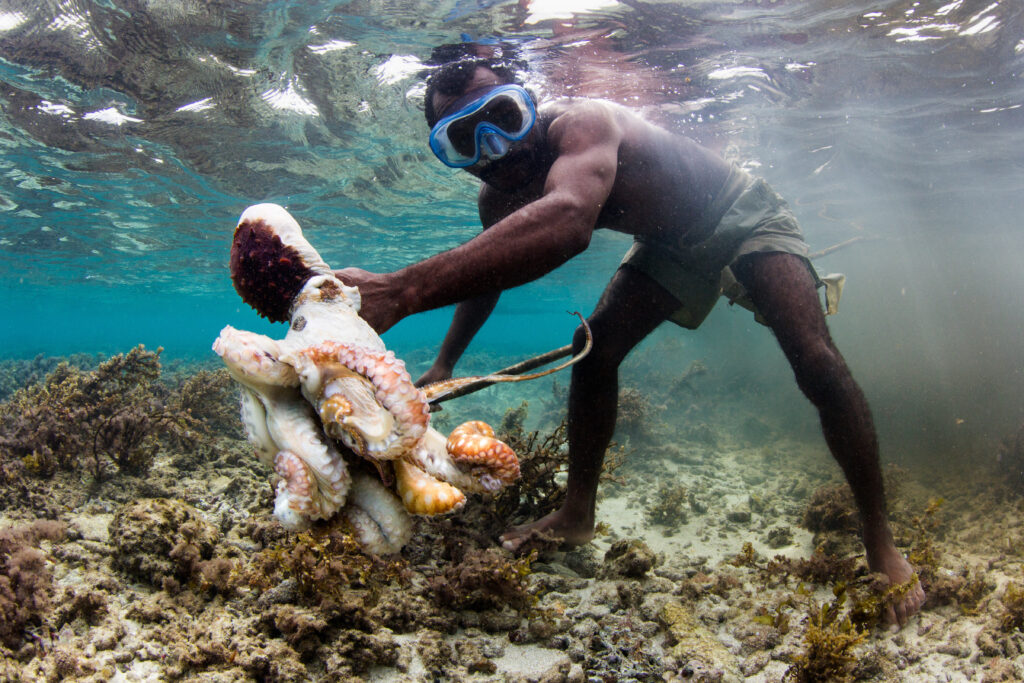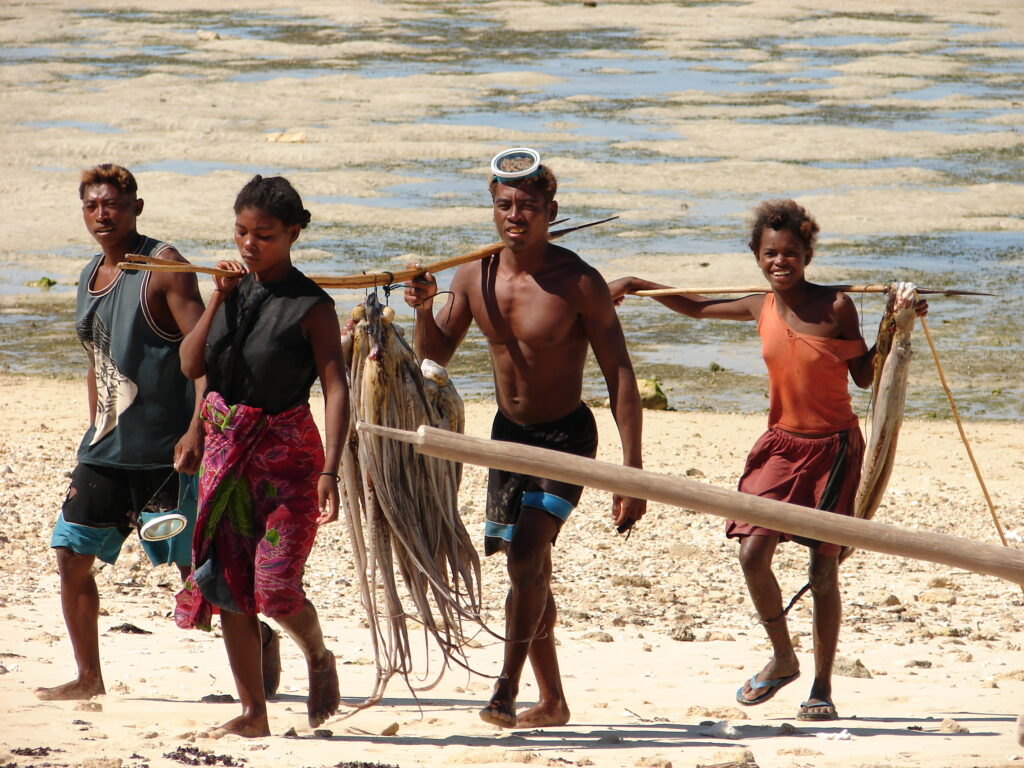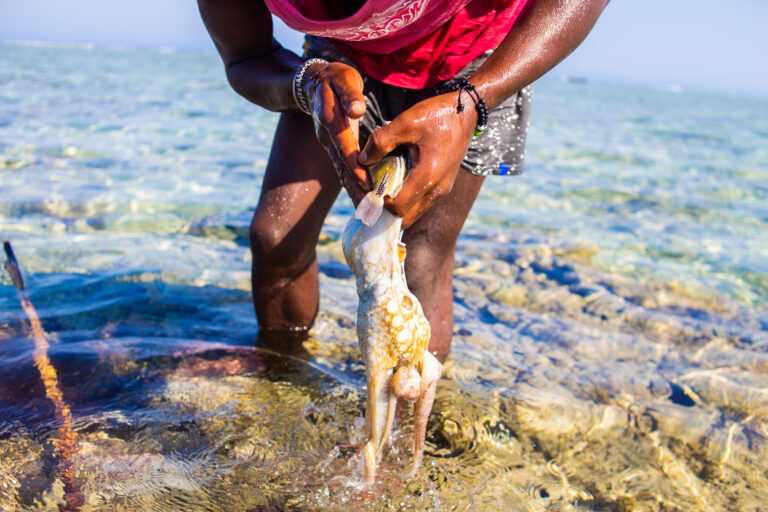New research highlights the importance of tropical small-scale octopus fisheries as a sustainable source of food and income to people globally.
Food and nutrition insecurity currently affect an estimated 2.3 billion people worldwide. Seafood plays a crucial role in providing healthy and nutritious food for billions of people, and the ocean’s role in food security will grow as climate impacts − including storms and droughts − compromise terrestrial food production systems.
The research, published in the journal Nature Food, highlights how small-scale octopus fisheries contribute to the food and nutritional needs of coastal communities throughout the tropics. Octopus fisheries take place in coastal states worldwide, but play a particularly important role in small-scale and artisanal fisheries in low and middle income countries.

The study found that octopus consumption provides a crucial source of micronutrients including vitamin B12, copper, iron, and selenium. These micronutrients are often lacking in staple food items, and the consumption of only a small amount of octopus can make a considerable contribution to achieving nutritional requirements.
The study’s lead author, Cambridge University researcher David Willer said: “Worldwide, nearly half of people’s calories come from just three crops – rice, wheat, and maize – which are high in energy, but relatively low in key nutrients. Just a small serving of something very, very micronutrient rich, like octopus, can fill critical nutritional gaps. And, of course, if you get better nutrition as a child you’re much more physically and mentally prepared for later life, which can lead to better jobs, better employment and better social development.”
The global review of tropical small-scale octopus fisheries found that in many cases small-scale octopus fisheries use relatively low impact techniques with negligible bycatch. When supported by appropriate fisheries management frameworks these fisheries can provide a sustainable source of seafood.
Locally led efforts to manage octopus fisheries have inspired a groundswell of support for community-led marine conservation in coastal states across the Indian Ocean. Hundreds of temporary octopus fisheries closures have been established by communities in more than a dozen countries in east Africa and southeast Asia in recent years.

In addition to their role in food security, octopus fisheries are a vitally important source of income for coastal communities, with octopus catches dominating small-scale fisheries in many coastal states, including in the western Indian Ocean, where the majority of catches sold and exported to overseas markets, predominantly in Europe. Importantly these fisheries often provide income for women, whose catches typically contribute more to feeding the family than those of men.
The booming trade in octopus may come at a cost to local food security, however. Co-author Charlie Gough, Blue Ventures’ Technical Advisor for Fisheries Management and Conservation, commented: “In countries like Madagascar, the majority of octopus is exported to distant markets in Europe and Asia. So communities benefit from income but lose out on some of the nutrients that octopus can provide. If we are serious about solving food insecurity globally, this trade-off between economic security and nutritional scarcity needs to be explored further in small-scale fisheries and other food systems.”
Read the full paper: The role of small-scale octopus fisheries in delivering food security to the tropics
Find out more about octopus fisheries management as a conservation catalyst: Marine management pays


















